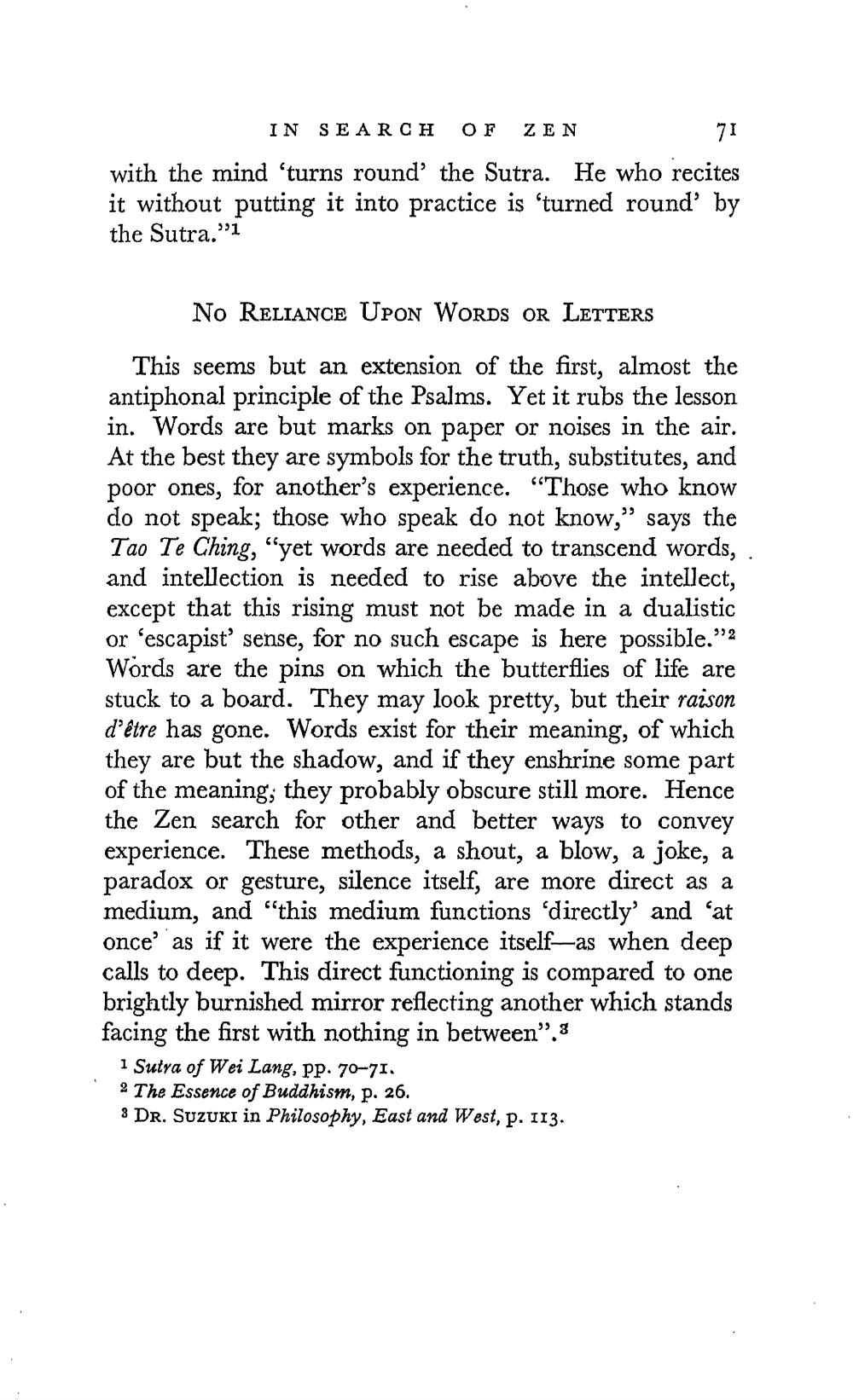________________
71
IN SEARCH OF ZEN with the mind 'turns round the Sutra. He who recites it without putting it into practice is 'turned round' by the Sutra."1
No RELIANCE UPON WORDS OR LETTERS
This seems but an extension of the first, almost the antiphonal principle of the Psalms. Yet it rubs the lesson in. Words are but marks on paper or noises in the air. At the best they are symbols for the truth, substitutes, and poor ones, for another's experience. "Those who know do not speak; those who speak do not know," says the Tao Te Ching, "yet words are needed to transcend words, and intellection is needed to rise above the intellect, except that this rising must not be made in a dualistic or 'escapist sense, for no such escape is here possible."2 Words are the pins on which the butterflies of life are stuck to a board. They may look pretty, but their raison d'être has gone. Words exist for their meaning, of which they are but the shadow, and if they enshrine some part of the meaning; they probably obscure still more. Hence the Zen search for other and better ways to convey experience. These methods, a shout, a blow, a joke, a paradox or gesture, silence itself, are more direct as a medium, and this medium functions directly and ‘at once as if it were the experience itself—as when deep calls to deep. This direct functioning is compared to one brightly burnished mirror reflecting another which stands facing the first with nothing in between". 3
i Sutra of Wei Lang, pp. 70-71. 2 The Essence of Buddhism, p. 26. 8 Dr. SUZUKI in Philosophy, East and West, p. 113.




